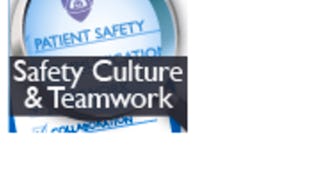Filter by
SubjectRequired
LanguageRequired
The language used throughout the course, in both instruction and assessments.
Learning ProductRequired
LevelRequired
DurationRequired
SkillsRequired
SubtitlesRequired
EducatorRequired
Explore the Continuing Medical Education Course Catalog

University of Zurich
Skills you'll gain: Laboratory Experience, Teaching, Instructional Strategies, Experimentation, Education and Training, Drive Engagement, Course Development, Scientific Methods, Simulations
 Status: Free Trial
Status: Free TrialINSEAD
Skills you'll gain: Blockchain, Business Leadership, Business Transformation, FinTech, Organizational Structure, Business, Business Modeling, Governance, Emerging Technologies, Business Strategy, Digital Transformation, Strategic Partnership, Entrepreneurship, Business Technologies, Innovation, Intellectual Property
 Status: Free Trial
Status: Free TrialJohns Hopkins University
Skills you'll gain: Patient Safety, Safety Training, Collaboration, Teamwork, Care Coordination, Patient Education and Support, Healthcare Ethics, Accountability, Risk Management, Systems Thinking, Leadership, Communication
 Status: Free Trial
Status: Free TrialJohns Hopkins University
Skills you'll gain: Telehealth, Patient Safety, Health Technology, Medical Equipment and Technology, Help Desk Support, Technical Support, Desktop Support, Health Care, Issue Tracking, Network Support, Change Control, Technical Documentation, General Networking, Technical Communication
 Status: Free Trial
Status: Free TrialUniversity of California, Irvine
Skills you'll gain: Peer Review, Video Game Development, Professional Development, Contract Negotiation, Media and Communications, Branding, Organizational Structure, Organizational Strategy, Game Design, Recruitment, Journalism, Fundraising, Competitive Analysis, Brand Strategy, Contract Management, Live Streaming, Higher Education, Workforce Planning, Event Planning, Strategic Thinking
 Status: Free Trial
Status: Free TrialUniversity of Michigan
Skills you'll gain: Learning Theory, Instructional Design, Design Thinking, Professional Development, Education Software and Technology, Web Content Accessibility Guidelines, Diversity Equity and Inclusion Initiatives, User Centered Design, Technology Strategies, Collaboration, Emerging Technologies
 Status: Free Trial
Status: Free TrialUniversity of California, Davis
Skills you'll gain: Data Integration, Health Informatics, Data Dictionary, Health Systems, Metadata Management, Data Compilation, Health Care, Data Mapping, Healthcare Industry Knowledge, Health Information Management, Taxonomy, Care Coordination, Data Literacy, Clinical Data Management, ICD Coding (ICD-9/ICD-10), Medical Records, Data Quality, Medical Terminology, Big Data, Interoperability
 Status: Free Trial
Status: Free TrialUniversity of Colorado Boulder
Skills you'll gain: Social Sciences, Sociology, Anthropology, Social Justice, Healthcare Ethics, Culture, Psychology, Laboratory Research, Behavioral Health, Social Work, Research, Media and Communications, Cultural Diversity, Mental and Behavioral Health, Food and Beverage, Biology, Non-Verbal Communication, Nutrition and Diet, Ethical Standards And Conduct, Environmental Science

University of Florida
Skills you'll gain: Medical Equipment and Technology, Healthcare Ethics, Health Technology, Internet Of Things, Patient Safety, Healthcare Industry Knowledge, Telehealth, Vulnerability, Medical Privacy, Legal Risk, Health Care, Data Ethics, Regulatory Compliance, Law, Regulation, and Compliance, Health Informatics, Threat Modeling, Vulnerability Assessments, Security Awareness, Cybersecurity, Security Controls
 Status: Free Trial
Status: Free TrialUniversity of Colorado Boulder
Skills you'll gain: Data Ethics, Data Visualization Software, Interactive Data Visualization, Visualization (Computer Graphics), Data Security, Data Presentation, User Centered Design, Statistical Visualization, Cybersecurity, Technical Communication, Usability, Healthcare Ethics, Cyber Attacks, Statistical Reporting, Human Computer Interaction, Authentications, Data Storytelling, Data Science, Ethical Standards And Conduct, User Research

University of California, Irvine
Skills you'll gain: Diversity Equity and Inclusion Initiatives, Diversity and Inclusion, Diversity Awareness, Intercultural Competence, Cultural Diversity, Human Resources, Human Resource Strategy, Safety Culture, Industrial and Organizational Psychology, Employee Engagement, Innovation, Recruitment
 Status: Free Trial
Status: Free TrialUniversity of Maryland, College Park
Skills you'll gain: Interviewing Skills, Negotiation, Oral Expression, Telephone Skills, Presentations, Concision, Professional Development, Applicant Tracking Systems, English Language, Verbal Communication Skills, Persuasive Communication, Strategic Marketing, Business Writing, Cultural Responsiveness, Cognitive flexibility, Personal Attributes, LinkedIn, Adaptability, Communication, Recruitment
In summary, here are 10 of our most popular continuing medical education courses
- Teaching Science at University: University of Zurich
- Blockchain and Business: INSEAD
- Setting the Stage for Success: An Eye on Safety Culture and Teamwork (Patient Safety II): Johns Hopkins University
- Operations and Patient Safety for Healthcare IT Staff: Johns Hopkins University
- Esports: University of California, Irvine
- Learning Experience Design: Orientation to the Profession: University of Michigan
- Healthcare Data Literacy: University of California, Davis
- Animals and Society: University of Colorado Boulder
- TECH MeD: Transdisciplinary Education for Critical Hacks of Medical Devices: University of Florida
- Vital Skills for Data Science: University of Colorado Boulder










